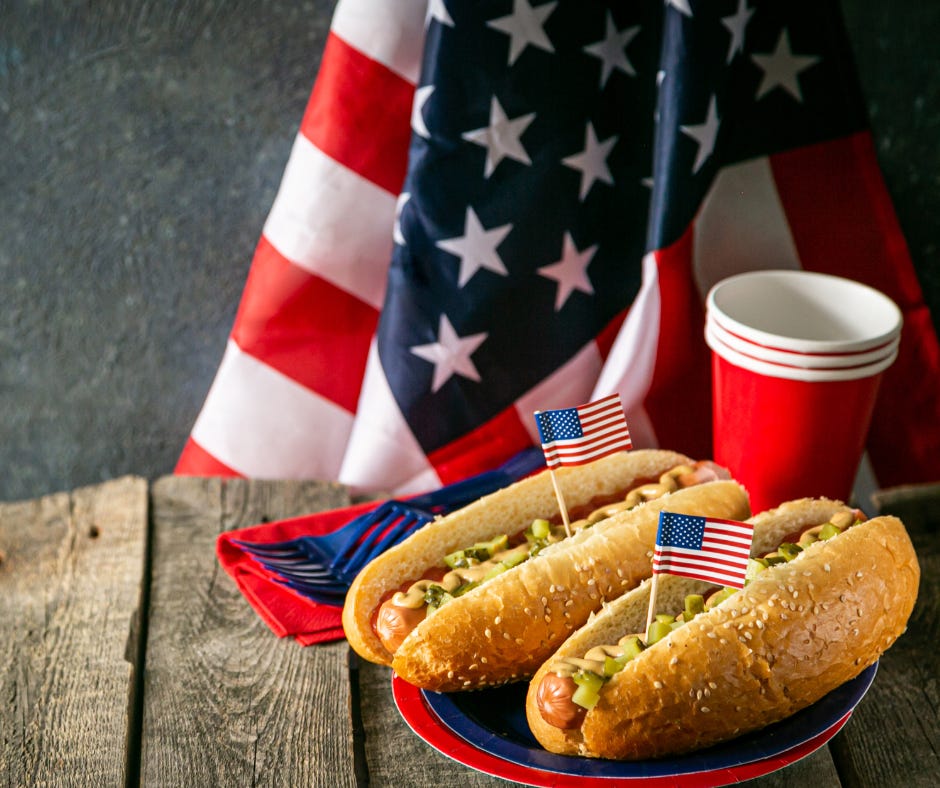Labor Day weekend in Louisiana is typically celebrated with a hint of fear over a possible hurricane. This year, we're more fearful of fire and praying for rain. The good news, however, is that the temperature is finally below triple digits. However, we are under a burn ban on the weekend that is famously associated with grilling over an open flame.
READ MORE: Gov. Edwards asking people to not barbecue for Labor Day as crews battle unprecedented wildfires
Because I love some fun facts, I researched a bit about the history of Labor Day and how it became associated so deeply with grilling that the Governor had to hold a press conference to ask people not to do it when our state is currently one big pile of kindling.
It all started when…
The first celebration was held in New York in 1882. It was made an official federal holiday in 1894 by President Grover Cleveland. Bet you didn't think it went that far back, did you? Well, its necessity becomes pretty clear when you look at the history of the labor movement in the U.S.
Needless to say, the 1800s was a big time in American history. This was when things were really getting started in terms of the industrial revolution. Although much was being created, a whole lot was being sacrificed, too.
The average American worker was spending about 12 hours a day working, and they were working seven days a week. Children as young as 5 years old were working in the mills, and they made less than half as much as an adult. When people like to think about the "good ol' days," they tend to forget all the awful, terrible, no-good things that happened right along with it.
Another BIG moment was happening in American history around this time - the Civil War. By the time we get to the 1880s, America was undergoing some serious changes. This is also the time when labor unions started to really get shaking.
Strikes, rallies, and protests were held to bring attention to the poor conditions. Pay was being renegotiated, and people really started to see the power of uniting. Keep in mind, there was violence, too. Change always seems to come with a bit of violence, unfortunately.
The Department of Labor was created on March 4, 1913. This was the agency that created the 40-hour workweek (love it or hate it, it's better than the 84-hour workweek, which was pretty standard until then.) They also created the concept of a "weekend."
Fire up the grill
My mind tends to go to the dark side of marketing when discussing holidays. Was Labor Day just a trick to make us buy charcoal and meat? Thankfully, it doesn't appear that way.
Some of the first and earliest Labor Day celebrations were accompanied by an outdoor barbecue. That's because this was a pretty standard form of civic celebration in the late 19th century.
The history of barbecue does not start in America, but its history here goes back long before colonization. In fact, the first indigenous tribes Christopher Columbus encountered were cooking meat over an indirect flame. It was a method the Spanish referred to as "barbacoa."
If you want to get authentic with your barbecue, then you'll want to stick to pig. In fact, the feral pig population we have such an issue controlling is the original fast food of the Americas.
Pigs can be set loose to forage and fend for themselves. Because they multiplied quickly, there was always a nice pig to hunt down. It was a cheap, low-maintenance way of "farming."
Over time, barbecue became a tradition, and the early political landscape utilized the social nature of barbecues as a way of networking in communities.
It wasn't until after WWII that barbecuing became an individual household activity rather than a large social event.
READ MORE: The Evolution of American Barbecue
Over time, barbecue became a tradition and the early political landscape utilized the social nature of barbecues as a way of networking in communities.
It wasn’t until after WWII that barbecuing became an individual household activity rather than a large social event.
Today’s labor movement
Although Labor Day may seem like a silly holiday to some, there's still a pretty big battle raging in the modern labor movement. In fact, the pandemic did a good deal to bring the conversation of fair labor practices back to the forefront.
"There have been recent signs of a reinvigorated labor movement, as union election petitions in 2022 bounced back from the pandemic to their highest level since 2015," says an analysis issued by The White House and Treasury. "And public opinion of labor unions is at its highest level in over 50 years."
READ MORE: As labor movements spread nationwide, White House highlights how administration is helping unions
Louisiana is not well-known for its labor unions. There are only 367 unions in the entire state that represent roughly 100,000 workers, which is roughly 5.9% of the state's workforce. The vast majority of those unions exist in New Orleans. Baton Rouge follows at second with a total of 79 labor unions.
Strong anti-labor laws such as "right-to-work" are what create states with lower union power. Louisiana, on the other hand, is sort of reversing that trend because unions have gained strength over the past few decades.
So now you know a bit more about Labor Day. Thanks for reading, and share this with a friend if you're enjoying the content. Also, come join us for a bike ride! We meet every Monday at 6 p.m. (depending on the weather) at the Electric Depot.
Links used in this article
https://www.history.com/topics/holidays/labor-day-1
https://guides.loc.gov/rosie-the-riveter/womens-bureau




Louisiana should rename it "Get U a Feral Hog Day" to curb that piggy populace. It's work but not work!
Great article, interesting information and well researched.